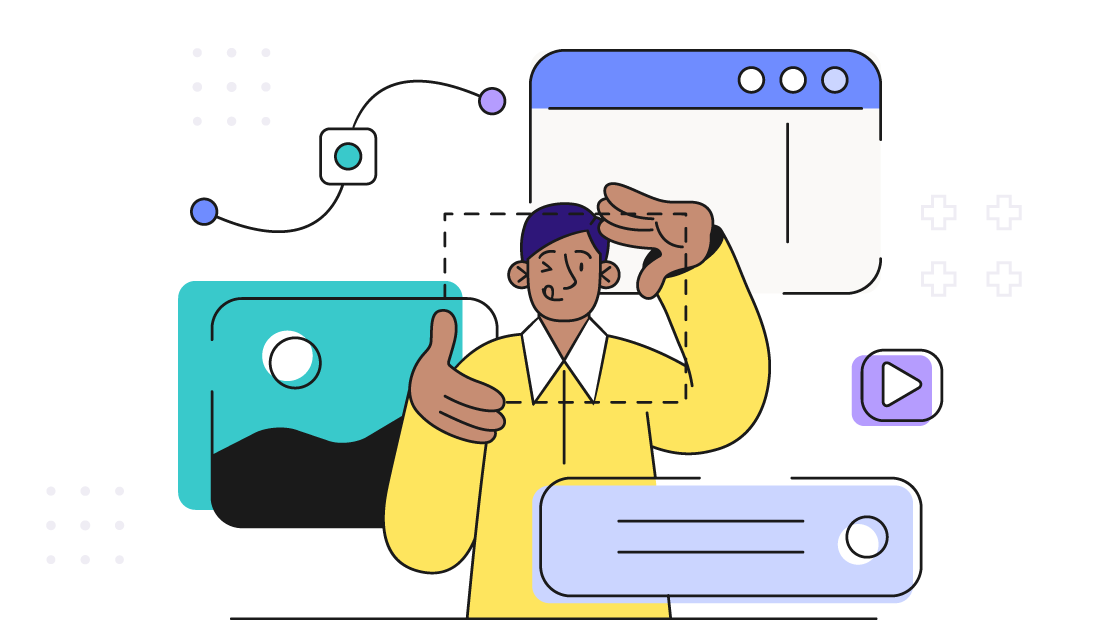

Search engine optimization (SEO) is a critical component of inbound marketing for healthcare. But healthcare SEO feels like a moving target for many healthcare tech companies. How can you get it right?
The good news is that there's a method to the madness. Here's what you need to know to boost your SEO ranking, increase visibility, and drive high-quality traffic to your website.
Whether you're new to inbound marketing or need to refine your healthcare SEO strategy, follow these best practices to improve your rankings and drive high-quality leads to your site:
Understanding your audience’s pain points is essential — healthcare software companies must be able to articulate how they help solve the most pressing problems and be able to define their unique value. But that’s just the first step. You must also deliver the right message at the right time based on where a prospect is in the customer lifecycle to progress them down the sales funnel.
As such, it's important to understand search intent — why your target audience searches — to create content they'll engage with. Your SEO strategy should cover these four types of search behaviors: Informational queries, navigational intent, commercial queries, and transactional investigation.
Moreover, get inspiration from the "people also ask" section in Google search results to address your audience's needs. Categorize your content idea by search intent to see if you have a collection of well-distributed content. Then, focus your resources on filling the gaps to address every stage in the customer journey.
Keyword research is a critical component of any SEO strategy. Your target keywords should reflect your audience's pain points and the key terms or phrases they use when searching for solutions.
To find the right keywords that drive high-quality traffic, you must first focus on your audience — your content should address their challenges and answer their questions. For a healthcare audience, you’ll want to be sure to consider every member of the buying team – from the CIO to the clinicians to the CFO. Then, conduct keyword research and use the insights to hone your healthcare SEO strategy.
Use keyword tools such as Google Search Console, Ahrefs, Moz, and Semrush to inform your SEO tactics. They can help you understand each keyword's search volume and competitiveness to find the sweet spot. You should also include long-tail keywords to reach prospects with high purchase intent.
On-page SEO helps you optimize website pages to rank high in search engine results. But including target keywords in your title tags and content is just the tip of the iceberg. You should also follow these best practices for technical and non-technical SEO:
A digital marketing agency can serve as your healthcare SEO consultant to ensure these elements are implemented successfully.
Fresh, engaging, and relevant blog content signals relevance to search engine algorithms. But how to pick topics that will deliver value while increasing dwell time, boosting SEO, and driving conversions?
Start with an overall content marketing strategy and identify messaging gaps. Consider the needs and priorities of each buying team member, especially those holding the purse string, by building a business case for investing in your products.
Group content to support each other and create pillar pages. Implement a link-building strategy to boost your SEO ranking. Also, create content that will offer the highest potential for longevity or repurposing, such as blogs highlighting annual statistics of an issue or “best of” lists you can easily update over time.
Search engine algorithms change constantly, and you must keep current with the latest trends to maintain your ranking.
For example, an analysis conducted by Semrush found that Google has changed the balance of its search engine results pages (SERPs) to show fewer informational results and more commercial and transactional ones. You should have a well-rounded digital strategy supported by high-quality, relevant content to cover all the bases.
Additionally, the rise of zero-click searches has changed the visibility equation. Instead of focusing solely on getting clicks, businesses must create content that will get featured in zero-click results to achieve top positioning on SERPs.
Is your healthcare SEO strategy effective? The proof is in the pudding — you must define and track meaningful KPIs to identify areas for improvement and focus your resources on tactics that yield results.
Set up Google Analytics to see if visitors are converting and which traffic source brings you the highest quality prospects. Track your conversion rates, customer lifetime value (CLV), cost per acquisition (CPA), organic visibility, return on investment (ROI), keyword ranking, and organic click-through rate (CTR) to see what works and what doesn't.
Also, integrate your SEO strategy with your healthcare social media marketing strategy to understand which types of content generate the most engagement. Analyze what makes your audience tick, and replicate the formula in search by targeting other intent or topics with a similar approach.
Healthcare SEO and healthcare social media marketing support each other, and they are integral components of a well-rounded digital marketing strategy for any healthcare tech company. As such, partnering with a digital marketing agency to serve as your healthcare SEO consultant can make the pieces work together to drive traffic, generate leads, and increase conversions.
Our experienced team at Spot On helps healthcare SaaS and tech companies develop and audit their SEO strategy, design a plan that resonates with their target audiences, and nurture leads to convert.
Schedule a time to see how we can help you leverage content, SEO, and ads to achieve your growth objectives.

Get the latest and greatest posts sent straight to your inbox.


